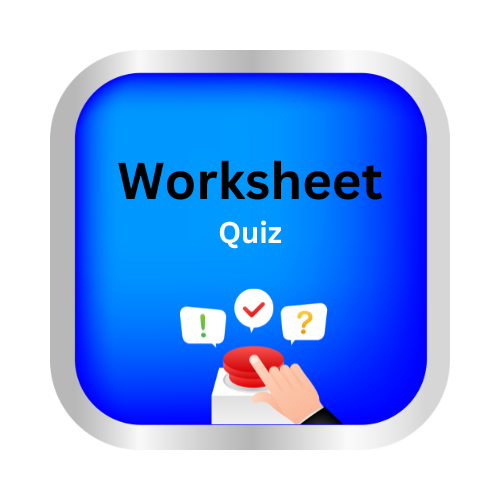Identify and correct errors with homophones
key notes :
| What are Homophones? |
Homophones are words that sound the same but have different meanings and often different spellings. They can be tricky because your brain might automatically fill in the word you think is correct based on the context, even if it’s the wrong one. This leads to common writing errors.
Key Characteristics:
- Identical pronunciation
- Different meanings
- Different spellings (usually)
| 🧠 Why Do Homophone Errors Happen? |
Homophone errors occur when students:
- Use the wrong word because it sounds correct
- Confuse spelling and meaning
- Don’t check the context of the sentence
| ✅ Steps to Identify and Correct Homophone Errors |
- Read the full sentence carefully.
- Think about the meaning of the word in that sentence.
- Check the spelling – is it the correct homophone?
- Replace with the correct word if needed.
| Common Homophone Errors |
Here are some homophone pairs/groups that frequently cause problems:
- there/their/they’re: Confusing the possessive their, the location there, and the contraction they’re.
- to/too/two: Mixing up the preposition to, the adverb too, and the number two.
- your/you’re: Using the possessive your instead of the contraction you’re, or vice versa.
- it’s/its: Forgetting the apostrophe in the contraction it’s or using it incorrectly in the possessive its.
- hear/here: Using hear (to perceive sound) instead of here (a place).
- affect/effect: Confusing the verb affect (to influence) with the noun effect (a result).
- then/than: Using then (time) instead of than (comparison).
| Examples: Incorrect vs. Correct |
Let’s look at some examples of incorrect homophone usage and how to correct them:
there/their/they’re
- Incorrect: Their going to the park.
- Correct: They’re going to the park. (They are)
- Incorrect: The dog wagged it’s tail.
- Correct: The dog wagged its tail. (Possessive)
- Incorrect: Put the book over their.
- Correct: Put the book over there. (Location)
to/too/two
- Incorrect: I am going to the store, to.
- Correct: I am going to the store, too. (Also)
- Incorrect: I have to many books.
- Correct: I have too many books. (Excessive amount)
- Incorrect: I want to go to the movies to.
- Correct: I want to go to the movies too. (Also)
your/you’re
- Incorrect: Your going to be late.
- Correct: You’re going to be late. (You are)
- Incorrect: Is that you’re book?
- Correct: Is that your book? (Possessive)
it’s/its
- Incorrect: Its a beautiful day.
- Correct: It’s a beautiful day. (It is)
- Incorrect: The cat licked it’s paws.
- Correct: The cat licked its paws. (Possessive)
hear/here
- Incorrect: Can you hear me over hear?
- Correct: Can you hear me over here? (Location)
affect/effect
- Incorrect: The affects of the storm were devastating.
- Correct: The effects of the storm were devastating. (Result)
- Incorrect: How will this effect my grade?
- Correct: How will this affect my grade? (Influence)
then/than
- Incorrect: I went to the store, than I came home.
- Correct: I went to the store, then I came home. (Time)
- Incorrect: She is taller then me.
- Correct: She is taller than me. (Comparison)
| Tips for Identify and correct errors with homophones |
Here’s how to improve your homophone accuracy:
- Read Carefully: Slow down and pay close attention to each word as you read. Don’t rely on your brain to auto-correct; actively think about the word’s meaning in the sentence.
- Consider the Context: What is the sentence trying to say? Which word makes the most sense in that specific situation?
- Break Down Contractions: If you’re unsure about it’s vs. its or you’re vs. your, mentally expand the contraction (e.g., it is, you are) to see if it fits the sentence.
- Memorize Common Homophones: Create a list of troublesome homophones and their definitions. Review them regularly.
- Use a Dictionary/Thesaurus: When in doubt, look up the word to confirm its meaning and spelling. A thesaurus can also help you find alternative words if you’re struggling.
- Proofread: Always proofread your work carefully, specifically looking for homophone errors. It helps to read your work aloud, as this forces you to slow down and pay closer attention.
- Ask for Help: If you’re not sure, ask a teacher, tutor, or friend to review your writing.
| 🧪 Mini Quiz (Find and Correct the Error) |
- The plain flew above the mountains.
- The teacher told us to right the essay.
- He lost his site in the accident.
- She took a brake from her work.
- My sun is in class 5.
✅ Answers:
- plane
- write
- sight
- break
- son
| Next Steps |
Now that you’ve learned about homophones, practice identifying and correcting them in your own writing and in texts you read. The more you practice, the better you’ll become at spotting these tricky words!
Let’s practice!

